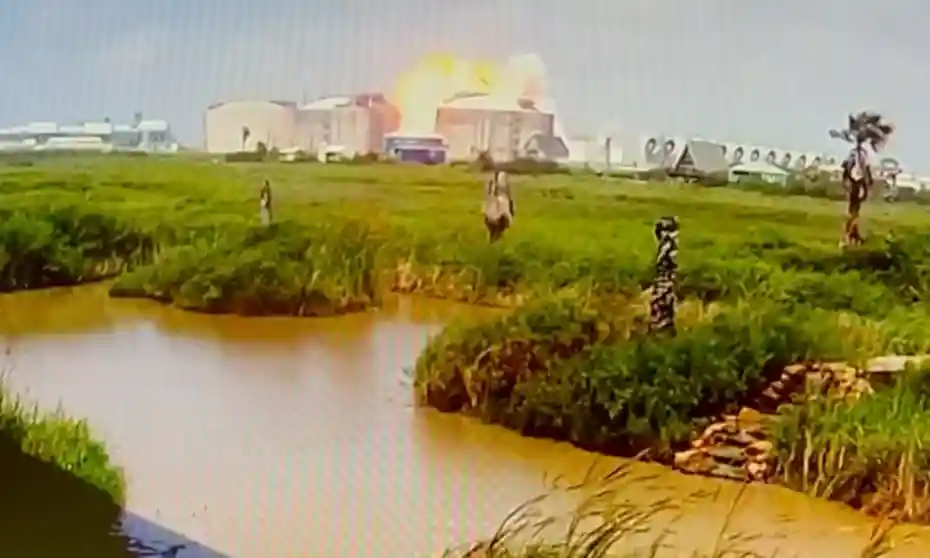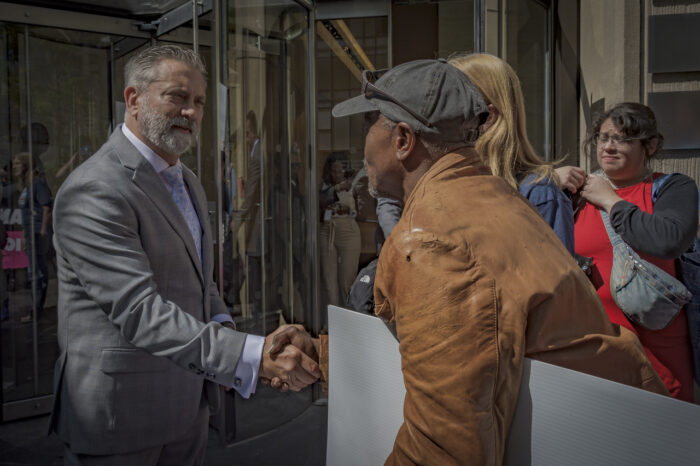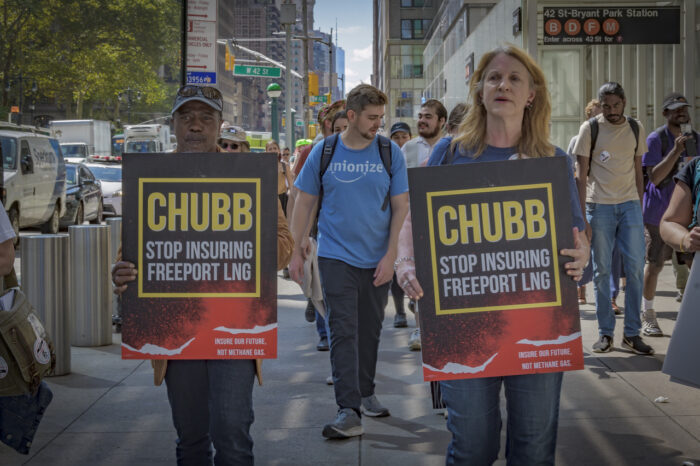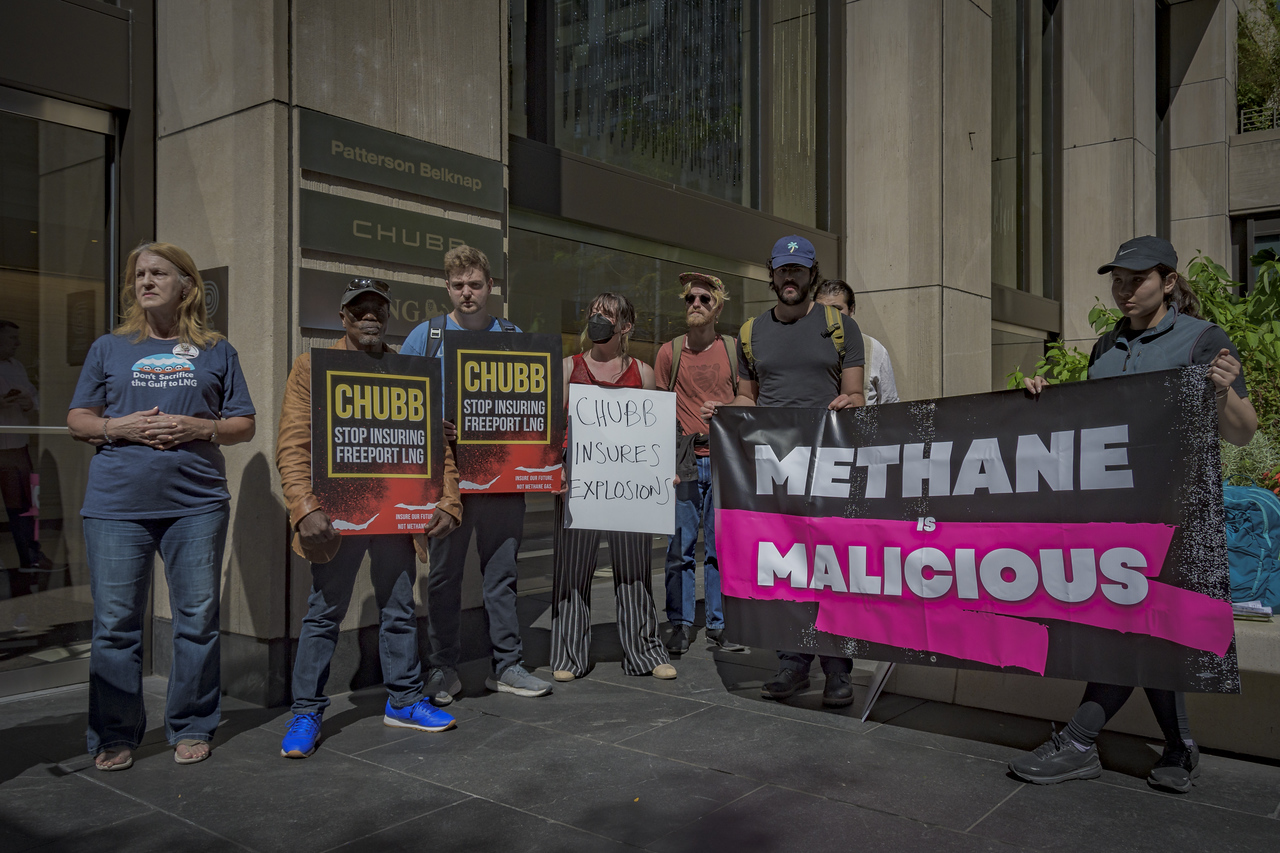Chubb Insurance might not be a household name, but it should be, because its impact on climate disasters like heat waves, floods, and wildfires is inescapable. A small handful of corporations hold the keys to insurance for major oil and gas expansion, and Chubb is one of them. But here’s the thing: Chubb is the only major US insurer with any methane requirements for its fossil fuel clients — but they still don’t go nearly far enough.

June 8, 2022: Freeport LNG explodes
Flashback to 2022. A massive boom rocks the city of Freeport, Texas. There’s been an explosion at the Freeport LNG methane export terminal, spewing fire and spitting toxic pollutants into the community. This town is already burdened by the severe health impacts of having a so-called “natural” gas facility in their backyard. For Melanie Oldham & Manning Rollerson of Better Brazoria, and other neighborhood residents, it’s exactly what they’ve warned about: it’s impossible to expand volatile methane gas without risk of major explosions. Explosions that result in 450-foot flames, beachgoers knocked over from the bang, and a child hospitalized with a head injury.
A year later, the Freeport LNG methane facility is still failing safety requirements. It’s a racket, a super-polluter, a public health hazard, and a ticking methane bomb. Freeport LNG is a massive liability.

October 19, 2023: Frontline leaders meet outside Chubb Insurance during New York Climate Week
Jump forward to New York City in October 2023. It’s been over a decade since Hurricane Sandy hit, and when that happened, people claimed it would “wake up Wall Street” to climate impacts. Yet, “climate progress protecting” Chubb still backs the polluters responsible for fossil-fuel-driven climate chaos, including Freeport LNG.
Melanie and Manning bring a crowd of activists, leaders, and allies to Chubb in Manhattan, and speak with a representative outside the offices after they were denied a formal meeting. They share the names of friends and families they’ve lost to petrochemical-caused cancer and the fear that comes with living in the shadow of an explosive methane facility. They hand-deliver a letter from over 140 organizations and the support of over 22,000 people with a clear demand for Chubb: stop insuring methane gas.
Chubb was willing to meet with the frontline leaders in weeks prior, by phone, which is rare for insurance companies. Of the 25 companies we asked to meet with community leaders from Texas and Louisiana — the epicenter of the petrochemical industry in the US and who are facing a massive increase in methane infrastructure — only two companies agreed to meet. Frontline leaders are willing to share more of their stories but then they want to see action and concrete ways that Chubb can demonstrate real leadership that supports their communities.

Now is the time for Chubb to step up as a true climate leader
While Chubb may be a leader in climate underwriting criteria for US insurers, that doesn’t mean much when you compare their actions and policies to their peers around the world. The US is the Wild West of oil and gas insurance; no major companies have any meaningful requirements to their climate commitments.
Methane gas (what the industry greenwashes as liquefied “natural” gas or LNG) is the fastest-growing fossil fuel sector in the world, with over 25 new export terminals slated for the US Gulf Coast alone. While Chubb has put in place methane-related underwriting criteria for extraction, by insuring the build-out of LNG, they’re supporting the largest methane-based fossil fuel build-out of our lifetimes. Remember, LNG is mostly methane, a greenhouse gas 80 times more potent than carbon dioxide. The climate crisis can’t afford these projects, nor can the frontline communities that are being impacted and are fiercely resisting.
We have less than seven years to cut our global fossil fuel use in half. Chubb has the opportunity to become a climate leader by refusing to insure the industry because these facilities can’t operate without insurance. Now is a critical time to keep pressuring Chubb to listen to communities and adopt comprehensive and equitable policies before it’s too late.












